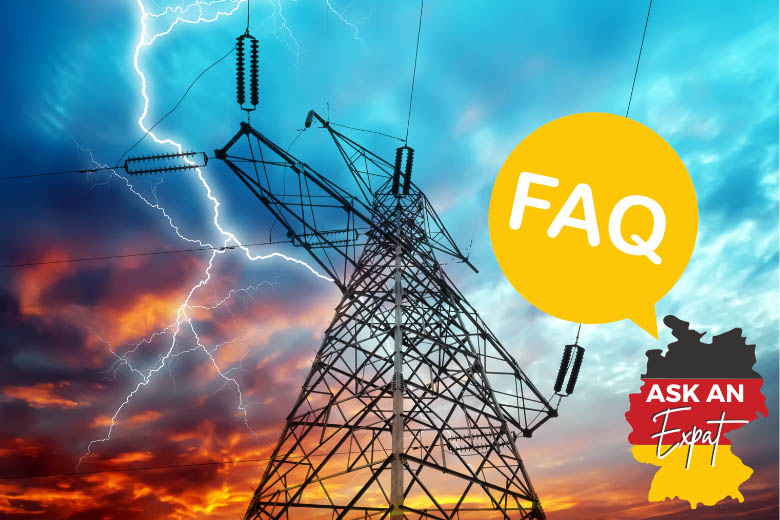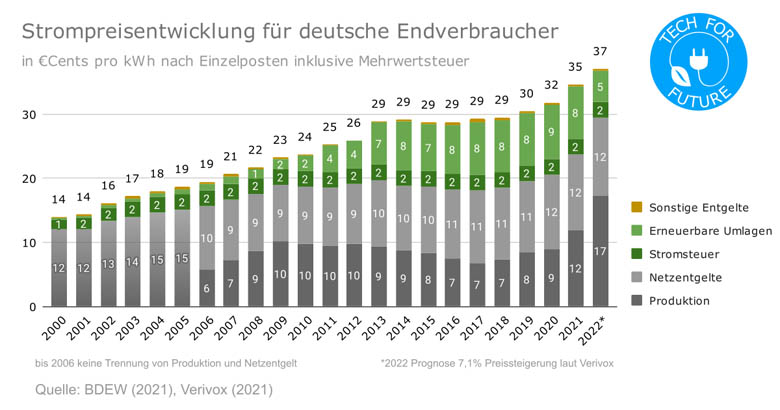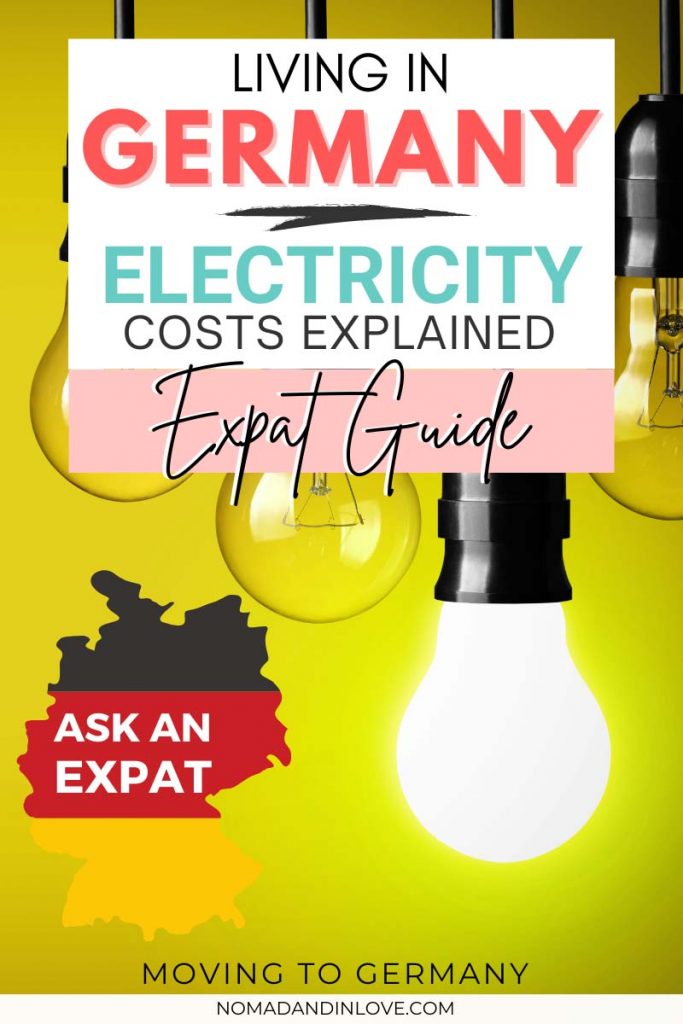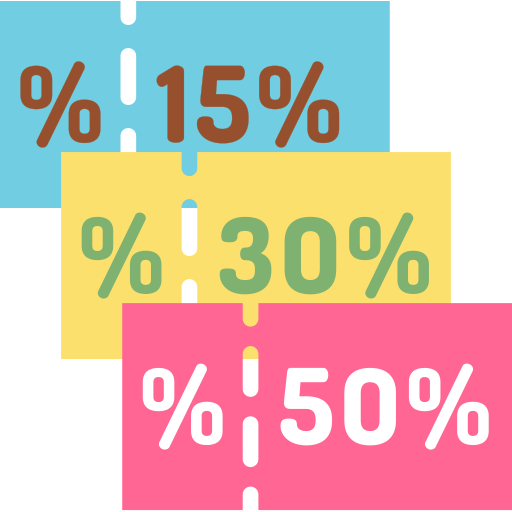
Why does Germany have the most expensive electricity prices in the world? What’s the average monthly electricity bill and is it true that it’s cheaper to use electricity at night? Expats answer the 8 most burning questions about electricity in Germany!
Are you planning to move to Germany? Then you probably have lots of questions about electricity in Germany and the process of signing up with an energy provider. If that’s the case, you’ve come to the right place!
As fellow expats living in Berlin, we’ve made it our mission to share our personal experiences and lessons learned to help you make the move abroad a little easier.
So if you’ve ever wondered why Germany has the most expensive electricity prices in the world, what’s the average electricity bill or whether it’s cheaper to use electricity at night, we’re answering 8 of the most frequently asked questions about electricity in Germany!
Related Guide: What are the exact things you should look out for when choosing an energy provider as an expat? We explain this in detail in our Electricity Providers in Germany guide.
1. Why Is Electricity So Expensive In Germany
If you’ve been wondering why electricity is so expensive in Germany, you’re not alone!
According to Statista, Germany has THE most expensive electricity prices in the world! That’s because nearly half of the electricity prices are made up of taxes.
No wonder electricity prices in Germany are at least 40% higher compared to the UK and US!
Related Guide: Electricity does not come cheap in Germany. But that doesn’t mean that there aren’t ways to lower your electricity bill. Here’s 9 tips to reduce and lower German Electricity costs.
And what exactly are these taxes being spent on? In sustainable and renewable sources of energy, of course!
According to Tech for Future, electricity prices in Germany are roughly made up of these costs:
- 29% for the production and delivery of electricity
- 36% in grid expansion for renewable energy
- 25% energy tax for investment in renewable energy
- 8.5% EEG Tax (Renewable Energy Sources Act)
- 1.5% other surcharges
Have electricity prices in Germany always been this expensive? Let’s look at the history of German electricity prices to find out.
2. The History of German Electricity Prices
According to Tech for Future, German electricity prices have increased by more than 260% since the year 2000 (+20 years).

In 2000, German electricity rates for private consumers (like you and I) paid 13.9 Euro cents per kilowatt of electricity. By the end of 2021, electricity rates have more than doubled to 37.1 Euro cents per kilowatt.
Now, we are by no means ‘electricity experts’. So we’d recommend reading more on the topic directly from the Tech for Future website. They’ve included a ton more detail and can explain it better than we ever could.
The website is in German though. So make sure you use Google Translate if your German language skills aren’t at that level yet.
Related Guide: Want to improve your German? Here are 22 fun and FREE ways to learn German online! From YouTube, podcasts, Netflix shows, free apps to online language courses!
3. Cost of Electricity in Germany vs the US
So we know that Germany has the highest electricity prices in the world, but how does it compare vs the US?

According to Statista, electricity costs $0.37 per kilowatt hour in Germany vs $0.15 in the US. That’s a whopping 2.5 TIMES more expensive!!! Thank goodness groceries are relatively cheap in Germany. Otherwise, the cost of living in Germany would be much steeper.
Related Guide: Curious to know what it costs to live in Berlin? Read our Cost of Living in Berlin guide for a full list of monthly expenses you can expect when moving to Germany.
4. How Are Electricity Costs Calculated in Germany
Electricity costs are calculated in a rather unique way in Germany. Unlike in other countries, your monthly electricity bill in Germany is calculated based on your estimated electricity consumption, NOT your actual consumption.
Confusing? Don’t worry – this was a culture shock for us too when we moved to Berlin almost 3 years ago.

Germany is still pretty old school. So electricity providers are only able to send you your actual electricity bill once a year when someone comes to take down your meter reading.
To avoid people having to fork out a huge bill at the end of 12 months. Electricity providers use an estimated electricity usage amount to calculate what you should pay monthly.
That way when you finally receive your electricity bill, you’ll either get money refunded to you because your usage was less than estimated. Or you have to pay extra for using more than your estimated electricity consumption.
Your electricity bill for the following year will then be adjusted lower or higher based on your actual electricity consumption in the previous year.
Related Guide: Found that interesting? Here are 14 other German cultural norms you should know to avoid getting culture shock when renting in Germany.
Save Me For Later

5. What’s The Average Electricity Bill in Germany
So how much does electricity cost in Germany if your monthly electricity bill is estimated rather than actual?
Again, it’s not a straightforward answer (like most administrative tasks in Germany!). Your average electricity bill in Germany will depend on the city and area you live in, the number of people living in the apartment (or house), and the size of your home.
But in general, electricity providers in Germany will estimate an average consumption of 1,500 kilowatts a year for one person. And an additional 1,000 kilowatts per year for every additional person living in the same household.
They will then take this estimated consumption and multiply it by the current electricity price to get your monthly bill.
Electricity rates in Germany have increased by more than 40% in 2021 alone. So depending on whether you had an existing contract or if you’re signing a new one, you can expect your average electricity bill to be between €40 to €50 per month if you live alone. Or between €60 to €70 if you’re sharing an apartment with another person.
Related Guide: Have you been forced to get a new electricity contract because your current provider has become bankrupt? You’re not alone! Here are 3 things you need to do if your electricity provider in Germany has filed for bankruptcy.
6. Is Electricity Cheaper in Germany At Night
This is another common question expats ask when moving to Germany: Is it true that electricity costs are cheaper at night?
The short answer? No, at least not for private consumers like you and me.

Technically, electricity prices would be cheaper at night if more households in Germany had smart meters. But since smart meter penetration is less than 1% in the country, we’re unable to take advantage of lower electricity prices at night.
Electricity prices in Germany are however cheaper in summer compared to winter though.
Related Guide: Moving to Germany? Find out 10 things you must do after you sign the rental contract for your new home in our Moving Apartments in Germany Checklist guide.
7. How Much of Germany’s Electricity is Renewable
Fair question! If nearly half of electricity prices in Germany goes towards investing in renewable energy, then how much of it is ‘green’ electricity?
According to the Umweltbundesamt (or Environment Department of Germany), more than 45% of electricity produced in Germany comes from renewable energy sources with wind power being the largest.
That’s awesome, right? But to actually use renewable ‘green’ electricity at home. You need to specifically sign-up with a renewable energy provider in Germany. It doesn’t happen automatically.

Luckily signing up with a renewable and green electricity provider in Germany has never been easier! There are thousands of options out there. The problem is finding the right one.
In our opinion, the best electricity providers for expats living in Germany, are Vattenfall and Ostrom. They both provide English customer support so you don’t need to panic or muster all the German language skills you got if you ever need to call them.
But all the paperwork you do (including your electricity contract) with Vattenfall will still be in German. Plus, you’ll have to pick a 12- or 24-month contract if you choose Vattenfall.
So if those 2 options are a no-no for you, then the best option will be Ostrom. Not only is everything done on the app (in English) and hence paperless. But they’re currently the only electricity provider in Germany that offers flexible monthly electricity contracts!
And those are just a few benefits of choosing Ostrom! We’re not going to list them all here. But feel free to check out their website for more information. And if you do choose to sign up with them, make sure to use our referral code: NOMADXLOVE to get up to €100 bonus!
8. How to Pay Electricity Bill in Germany
This will depend on the provider. But most electricity providers in Germany will let you pay your electricity bill by bank transfer or via debit order.
If it’s the debit order option, you may need a German bank account to pay your monthly electricity bills. Don’t have a German bank account? Don’t worry! Find out how you can easily open a German bank account (no Anmeldung required) for FREE in less than 10 minutes.




